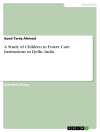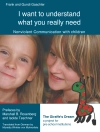This book examines the European discussion about alternative schooling in the 20th century. It refers to a stream of concepts that are often described as New Education, Progressive Education, Education Nouvelle or Reformpädagogik, and discusses a range of different models of alternative schooling. Exploring the works of a range of continental educational philosophers, including Lietz, Blonsky, Kerschensteiner, Freinet, Decroly and Petersen, the book offers a unique insight into texts not yet translated into English. These educational models are presented with regards to the biographical background of the authors; the crucial elements of their construction; the historical interconnections between schooling, society and culture; and finally their connection to today’s discussions in educational sciences. The book will be highly relevant for researchers and advanced students working on the theory, history and practice of schooling, particularly those with a focus on alternative schooling and the philosophy of education.
สารบัญ
Chapter 1. Preface.- Chapter 2. Hermann Lietz and the German Country Boarding Schools.- Chapter 3. Georg Kerschensteiner and the Industrial School.- Chapter 4. Ovide Decroly and the ‘Ecole pour la vie’.- Chapter 5. Pavel Petrovich Blonksy and the Labor School.- Chapter 6. Peter Petersen and the Jena Plan School.- Chapter 7. Célestin Freinet – A Biographical Approach.
เกี่ยวกับผู้แต่ง
Ralf Koerrenz is Head of Chair for Historical Education and Global Education at the Friedrich Schiller University Jena, Germany.
Annika Blichmann is Research Associate at the Chair for Historical Pedagogy and Global Education at the Friedrich Schiller University Jena, Germany.
Sebastian Engelmann is a Research Associate and lecturer at the Institute for Bildung and Culture at the Friedrich Schiller University Jena, Germany.












